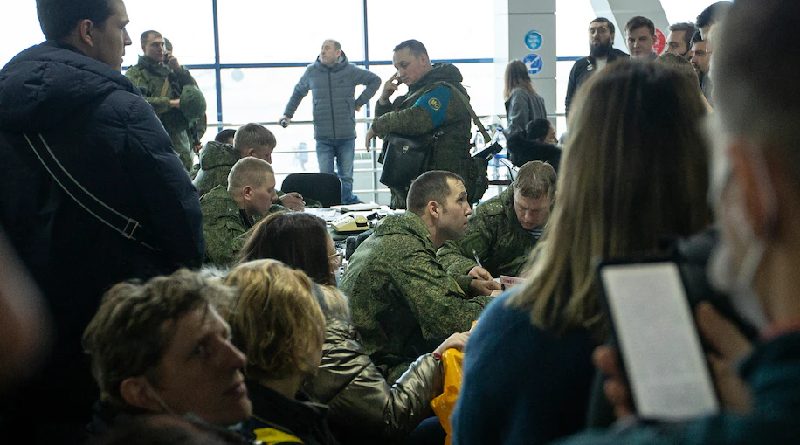Five things I think about Kazakhstan
By Daniel W. Drezner, Professor of International Politics at the Fletcher School of Law and Diplomacy at Tufts University
Neither U.S. nor European officials are terrifically thrilled with the CSTO’s actions. Secretary of State Antony Blinken noted on Friday, “One lesson of recent history is that once Russians are in your house, it’s sometimes very difficult to get them to leave,” a rare example of U.S. concern trolling of Russia. EU officials were more circumspect but nonetheless stated, “Outside military support should respect the sovereignty and independence of Kazakhstan as well as the fundamental rights of all citizens.”
With Kazakhstan’s government now declaring the situation “stabilized,” what does this all mean? Spoiler Alerts has a few thoughts:
1. The authoritarian playbook for unexpected social protests has now been codified. The color revolutions and Arab Spring protests took a lot of authoritarian rulers by surprise. Over the past two decades, however, these leaders have begun to perfect their playbook of how to respond to such movements. Crack down on online communications. Blame external agitators for the violence. Use overwhelming force to reestablish control. Ignore external criticisms.
Kazakhstan’s government has played all of these cards, although it has not always played them with great skill. Most authoritarians do not broadcast their “shoot to kill” orders on television. As Tokayev has tried to deflect from this faux pas, his government has committed another. As The Post’s Khurshudyan reported on Sunday, one of Tokayev’s aides claimed that peaceful protests had been “hijacked by terrorists and both local and external groups speaking foreign languages.” As evidence, however, they broadcast an interview from a roughed-up foreigner claiming he’d been paid $200 to incite violence. As it turns out, that foreigner was Kyrgyz jazz musician Vicram Rouzakhunov, and the Kyrgyz government has pushed back against his dubious narrative even as they contributed 150 troops for the CSTO mission. Oops.
2. Authoritarian leadership transitions are tough. The New York Times’s Valerie Hopkins has an interesting profile of Tokayev, including his decent professional pedigree and his long-standing service toward Kazakhstan’s first president, Nursultan Nazarbayev. She notes that his rise “to the presidency was looked at as a possible model by other authoritarian regimes on how to conduct a leadership transition without losing their grip on power. Instead, Kazakhstan erupted in violence this week.”
There are a couple of reasons for this (see below). The most obvious one, however, is that Nazarbayev wished to preserve his standing as the power behind the throne, maintaining his remaining positions as head of the ruling party and Kazakhstan’s security council. As Hopkins notes, there is “widespread speculation that the rioters were organized by proxies for feuding factions of the political elite, pitting Mr. Nazarbayev and his allies against Mr. Tokayev.”
3. The Sino-Russian entente is stronger than Washington expected. It is interesting that Tokayev turned to Putin and the CSTO rather than, say, the Shanghai Cooperation Organization as a source of international assistance. Central Asia is a battleground for influence between Russia and China. In pivoting toward Putin, it would have been easy to see a Chinese reaction that ranged from neutral to chilly. Except that did not happen:
The common theme here is not great power influence, but domestic political concerns. China does not like to see authoritarian governments toppled by popular protests. And this shared concern is one reason that this Kazakhstan business is unlikely to ruffle bilateral Sino-Russian ties.
4. 21st-century challenges are not just a problem for democracies. Over the past month I have read a lot about the crisis of democracy and the rise of populism and authoritarianism. Even a casual glance at recent trendlines would make it difficult to dismiss these concerns.
It is worth noting, however, that Kazakhstan is only the latest headache for Russian President Vladimir Putin as he tries to expand his sphere of influence. He had to bolster his wobbly Belarusian ally Alexander Lukashenko in response to large-scale 2020 protests. About a year ago, Putin also had to deal with a season of internal protests. And China must be worried that unrest in Kazakhstan will spill over into Xinjiang.
Concerns about Russia moving into Ukraine have been elevated over the past month, but the likely U.S. response suggests that Russia would have to deal with yet another restive neighboring republic. I am not saying that any of this will deter Putin from moving on Ukraine. I am just saying that Russia and China have their own insecurities and concerns to deal with right now.
5. This is bad for climate change. In a fascinating analysis, Reuters’s Karin Strohecker notes that the root of the Kazakhstan protests was an easing of consumer fuel subsidies that raised energy prices. Other countries such as Ecuador have faced similar social dynamics, highlighting that “many emerging markets have to balance the risk of social unrest against the need for reform.”
One way to address climate change is to make the use of any hydrocarbons more expensive. There is a reason lots of developing countries have opposed the end to domestic fuel subsidies, however: They do not want to be the next Kazakhstan. That will make it all the more difficult to incentivize the carbon transition that needs to take place to halt climate change.
This piece was re-published from The Washington Post.

